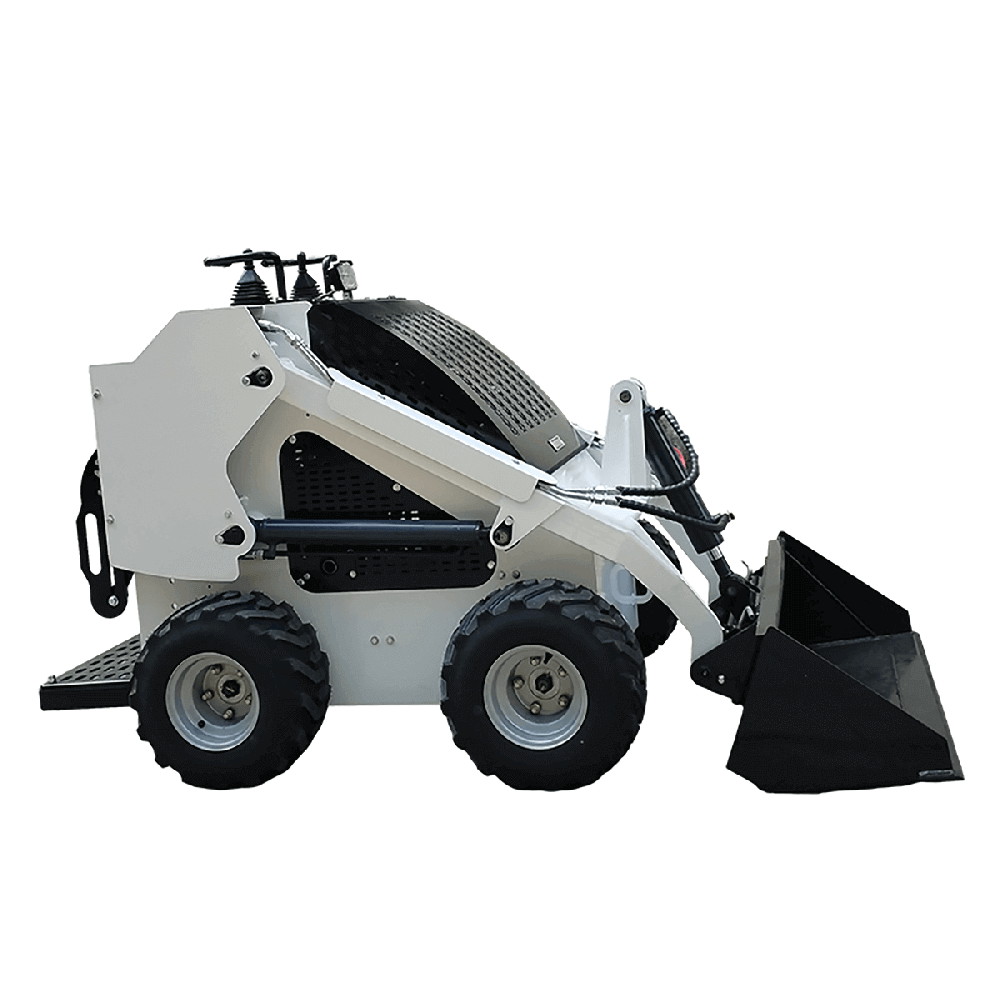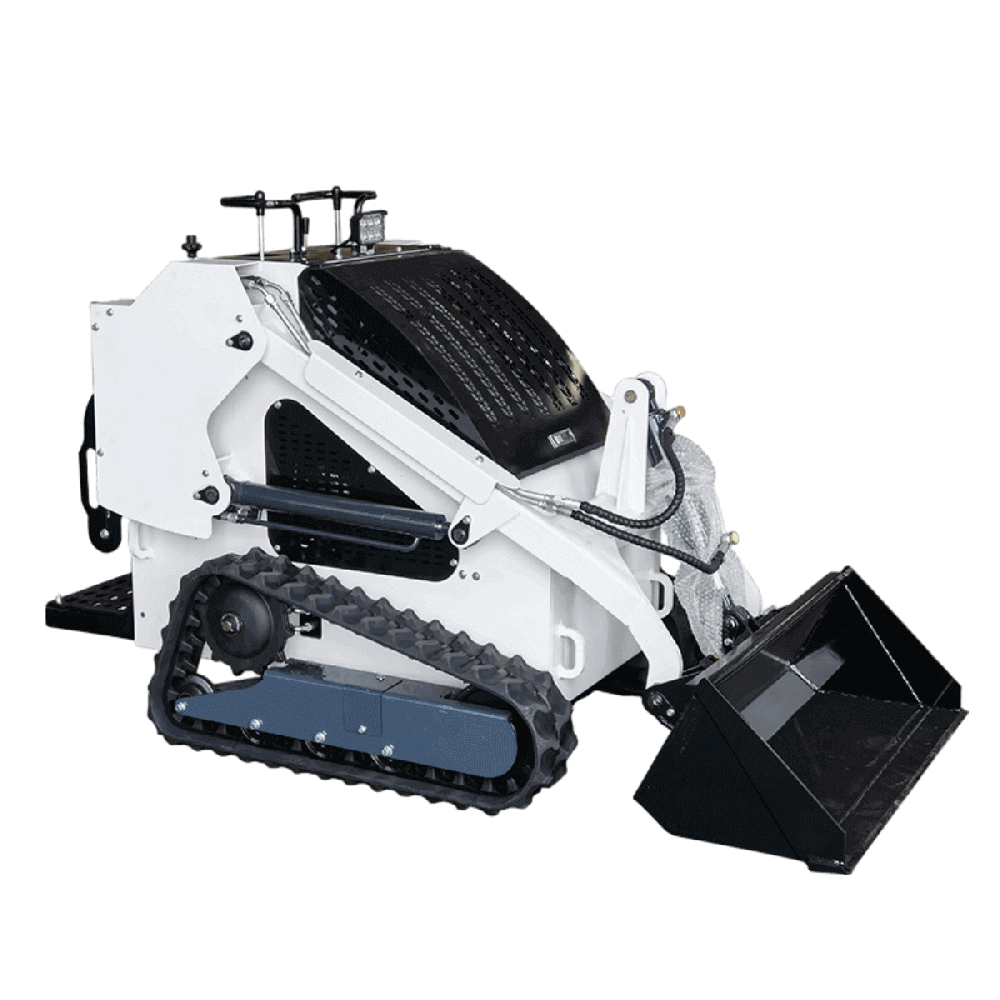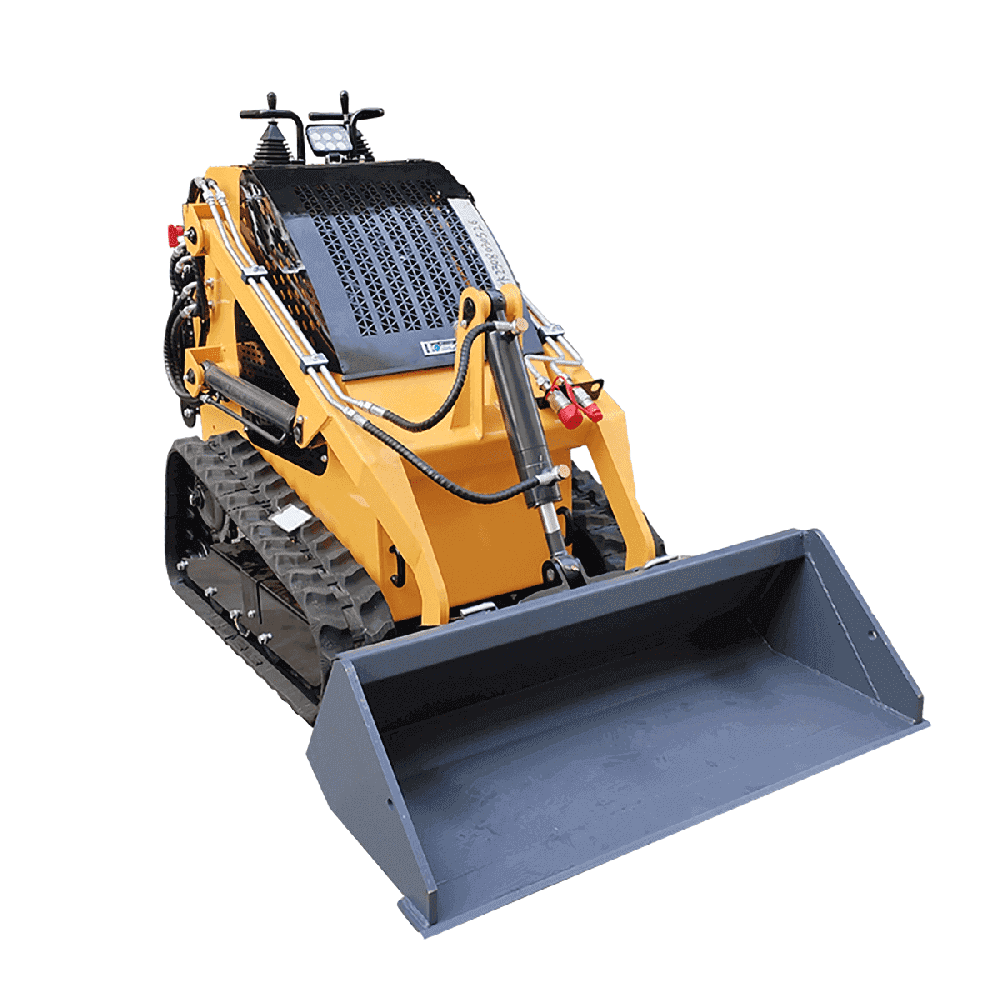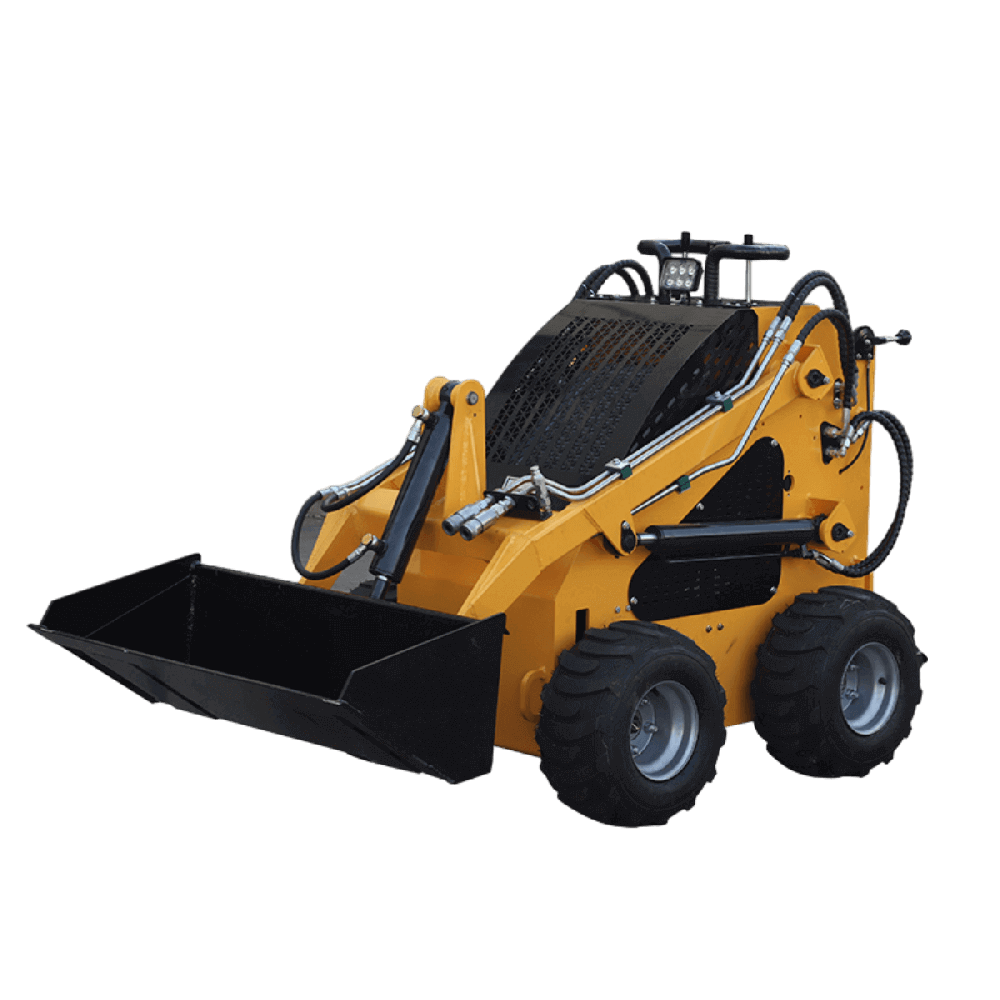loader - all it takes!
BISON is a professional loader manufacturer with many years of export experience in this industry. Our loaders are designed for performance driving, use first-class brand engines, use less fuel, and are known for their durability and ease of maintenance. With the most complete loader lineup, you are sure to find the type of loader you want at BISON.

Serveice
Professional loader manufacturer
- BISON is able to fulfill large volume orders.
- Support flexible payment methods.
- One-stop shop for loader accessories.
- OEM solutions for your specific loading task.
- Short lead time, fast shipping from BISON loader factory!
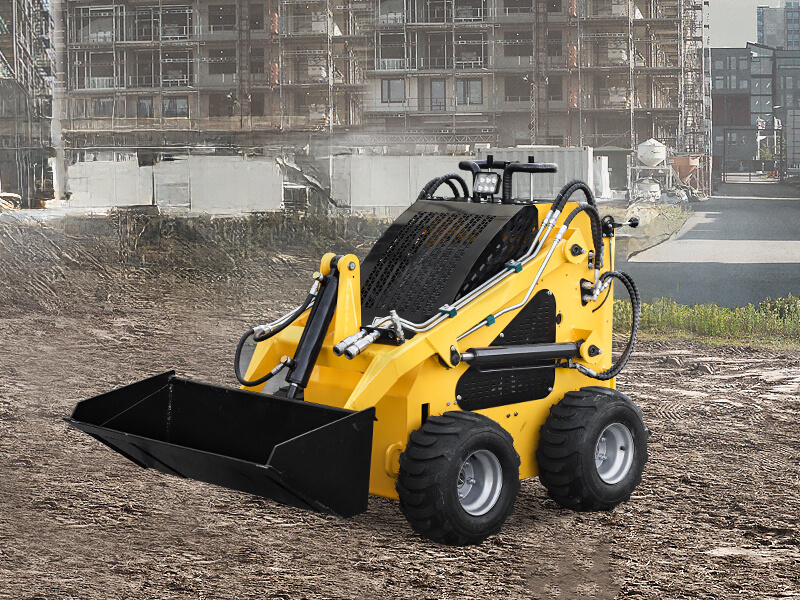
Application industry
- Agriculture: In agriculture, BISON loaders assist in the handling of bulk materials such as hay and grain. They are also responsible for excavation and leveling tasks on the farm, improving the efficiency of various agricultural operations.
- Forestry: BISON loaders play a vital role in the forestry and logging industry by moving logs and loading lumber onto trucks. Their strength and mobility are assets in harsh forestry environments.
- Landscaping: Loaders benefit from landscaping tasks such as moving soil, mulch and materials. They also help level and level terrain, increasing the precision of landscaping projects.
Leave Us Your Info
Loader is indispensable tool in the construction field, be able to skillfully moving materials onto dump trucks, conveyor belts etc. Often used for excavation, grading, snow removal, and miscellaneous material handling tasks, they have contributed significantly to advancement of countless infrastructure projects.
There are many different types of loaders on the market, such as flexible skid-steer loaders, rugged wheel loaders, and track loaders etc, each of which is designed to perform well in specific situations.
Selecting the appropriate loaders for your specific needs cannot be overstated. Through this comprehensive guide, BISON can provide with the knowledge you need to make an informed purchasing decision. You'll learn the differences between various loader types, their ideal uses, and key considerations when purchasing. Let's dive into the wonderful world of loaders and make the best equipment decision for your needs.
Learn about loader key features and components
A loader's functionality, durability and suitability for a specific task often depend on its key features and components. Before know varied types of loaders, it's essential that we first familiarize ourselves with their main features and components.
Bucket: Bucket determines amount of material a loader can carry in a single load. Larger capacities are optimal for heavy duty tasks and expansive job sites, whereas loaders with smaller bucket capacities are ideal for intricate or confined spaces.
Engine: This represents the heart of the loader. Engine power determines how efficiently a loader can perform difficult tasks. It affects travel speed, lifting capacity and the ability to work in challenging conditions. Remember, more engine power usually means higher fuel consumption.
Tires or Tracks: Wheel loaders come with heavy duty tires, are ideal for hard surfaces and fast movements. In contrast, track loaders are equipped with tracks that better distribute weight of machine, giving it excellent balance and maneuverability on softer or uneven terrain.
Lifting mechanism: A loader can be characterized by its radial lifting or vertical lifting path. Radial lift loaders are ideal for medium working heights, providing maximum reach at the midpoint of the lift. In contrast, vertical lift loaders maintain reach when the load is raised, which is useful in tasks such as truck loading.
Easy replacement of attachments: Particularly skid steer loaders and compact track loaders, as they serve as all-purpose machinery. The provision to interchange attachments, ranging from forks, brooms or augers, to buckets, grapples, blades, and couplers, enhances flexibility of loader, demonstrating its capability to adjust to various tasks.
Understanding these overall loader features and components will play an important role in deciding which loader is best for your operation. In the following sections, we'll dive into the specific benefits and ideal uses of each loader type and help you find the best option for your unique project. Remember, the right loader is more than an expense, it's an investment in your productivity, efficiency and operational success.
Different loader types and their uses
Backhoe loader
These are the all-rounder of the loader family. Equipped with a loader on the front and an excavator-like arm on the rear, they can dig, trench, backfill and load, making them ideal for general construction or landscaping work. Their relatively compact size and versatility make them common on urban projects and small excavation operations.
Skid steer loader
Famous for their agility, skid steer loaders incorporate a distinctive feature which allows for 360-degree rotation, rendering them perfectly suited for operations in constrained environments. This unique ability makes them particularly applicable for various tasks like excavation, drilling, and concrete mixing, especially when facilitated by diverse attachments. They are lightweight and cause less damage to regular road surfaces.
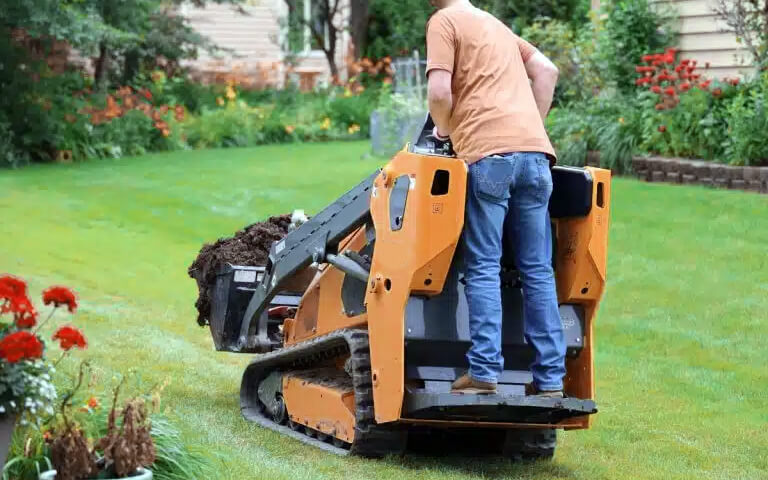
Compact track/multi-terrain loaders
These are essentially skid steer loaders equipped with tracks as opposed to wheels. They retain the versatility innate to skid-steer loaders, while also delivering outstanding traction for dealing with challenging terrains. This makes them efficient operators when facing soft, uneven ground conditions or slippery surfaces such as sand, snow, or mud. Landscape and architectural tasks are where they really shine.
Wheel loaders
Regarded for their formidable lifting and loading ability, these robust machines are specially designed for sizeable operations like quarries, mining, and major construction developments. Their strength lies in efficiently moving substantial quantities of materials, such as gravel or soil, in quick succession across short to medium distances.
Track loader
Ruggeder than compact track loaders, offers the comfort of a larger operator's compartment and the advantages of tracked movement over uneven or soft terrain. They are ideal for projects requiring large-scale excavation, grading and excavation in challenging environments.
Articulated loader
These loaders perform well in tight spaces and uneven terrain, with an articulating action that separates the front and rear. This articulation ensures the loader maintains all-wheel ground contact for optimal stability while providing excellent maneuverability.
Remember, the efficiency of these loaders can be significantly improved by choosing the right set of attachments for a specific task. Making this conscious choice means optimizing the impact of a bucket, blade, pallet fork, auger or other piece of equipment based on your unique needs. It's not just about getting a tool that gets the job done; This is to ensure you find the right tool for the job. In the next section, we'll dive into the buying considerations to ensure you choose the best loader.
Basic factors to consider when purchasing a loader
Choosing the right loader is more than just choosing a machine within your budget. This is a complex process that involves careful evaluation of many fundamental factors. This section will guide you through those key considerations in the loader selection process.
Loader size
While smaller loaders save costs and work well in limited spaces, larger loaders offer higher lifting capabilities and better towing capabilities. It's important to choose a size that fits your workspace and the load it needs to handle.
Materials to be handled
Different loaders have different abilities to handle materials. For example, when handling dense materials such as gravel or rock, a high-capacity loader may be more suitable. A smaller, more nimble loader may be better able to handle lighter materials like mulch or snow to optimize space utilization.
Terrain type
Skid steers or wheel loaders offer excellent maneuverability on firm, flat ground. Certainly, when it comes to challenges presented by potholed or uneven landscapes, tracked or articulated loaders to be the more suitable choice. Their advantage lies in the superior stability and enhanced weight distribution they provide, ensuring both efficacy and safety under such difficult conditions.
Lifting capacity
It's a vital aspect to think about if your project necessitates handling or transportation of hefty items. While determining lifting capacity of your equipment, it's essential to consider nature and weight of material you'll be managing.
Reach and unload height
Loaders with higher unload reach can unload materials into taller hoppers, trucks, or taller stacks. Telescopic loaders are exceptional performers in such circumstances, with their unique abilities to lift and reach. However, skid steer loaders and wheel loaders with vertical lift paths, which still present valuable alternatives.
Hydraulic flow
Attachments like brooms, augers, or trenchers require high-flow hydraulic systems to function optimally. Therefore, a clear comprehension of your attachment requirements is crucial in deciding upon the most suitable hydraulic system. Whether a standard or a high-flow hydraulic system is needed can be deduced from your specific operational needs.
Horsepower
The horsepower of engine directly affect the overall performance of loader. However, keep in mind that more horsepower is usually associated with increased gas mileage. Therefore, balancing power needs and fuel budget is critical.
Frequency and cycles of operation: Make sure the loader you choose can easily manage the frequency of its use without overheating or requiring too much maintenance. Rugged machines designed for long operating cycles will perform better in demanding environments.
Other factors to consider may include:
Ease of operation: Modern loaders come with features that enhance user comfort and convenience, such as air-conditioned cabs, automatic transmissions and touch-screen panels. Easier operation increases productivity.
Resale value: Some makes and types of loaders hold their value better over time. If you have future intentions of reselling your loader, you might find it advantageous to invest in a piece of equipment that is celebrated for its durability and robust resale value.
After-sales support: Reliable, timely service support is extremely valuable when unexpected downtime occurs. It may be wise to consider a loader manufacturer that offers strong after-sales service to ensure minimal disruption to operations.
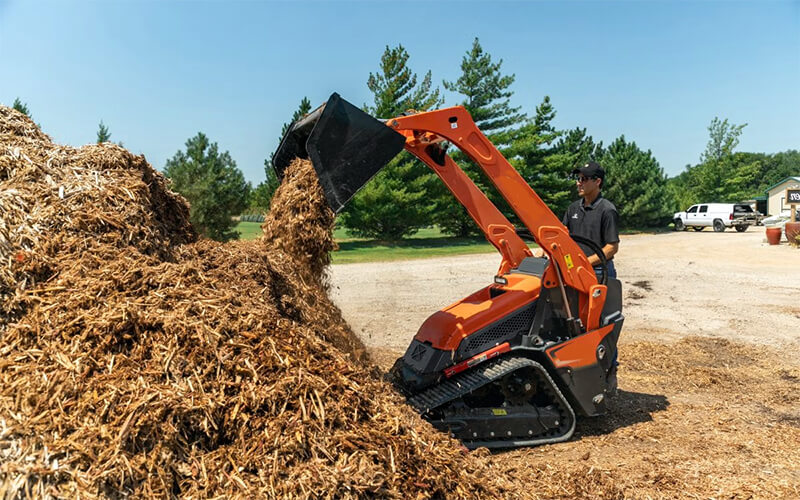
In order to achieve the best service life and operational efficiency of the loader, it is also necessary to ensure correct management and maintenance and regular prevention.
In summary, this guide takes you through the world of loaders, from types, features, buying considerations to maintenance. With this knowledge, BISON believes you will be able to make the best decision, select a loader that suits your needs, and help you improve operational efficiency and productivity.
Faqs
What are the main uses of loaders?
Loaders make construction tasks easier, and they can also move materials from one place to another quickly. These machines are critical for activities that generate large amounts of debris, such as excavation.
Is a loader an excavator?
Although the uses of the two may be conflated in some aspects, the general understanding is that excavators are usually used to dig soil from the ground, dig trenches, holes, etc. Loaders, on the other hand, are typically used to transfer loads from the ground. From one point to another.
How does the loader turn?
Loader steering is accomplished through differential steering, where the left and right wheel pairs run at different speeds, and the machine turns by sliding on the ground or dragging its fixed-directional wheels.
table of content

